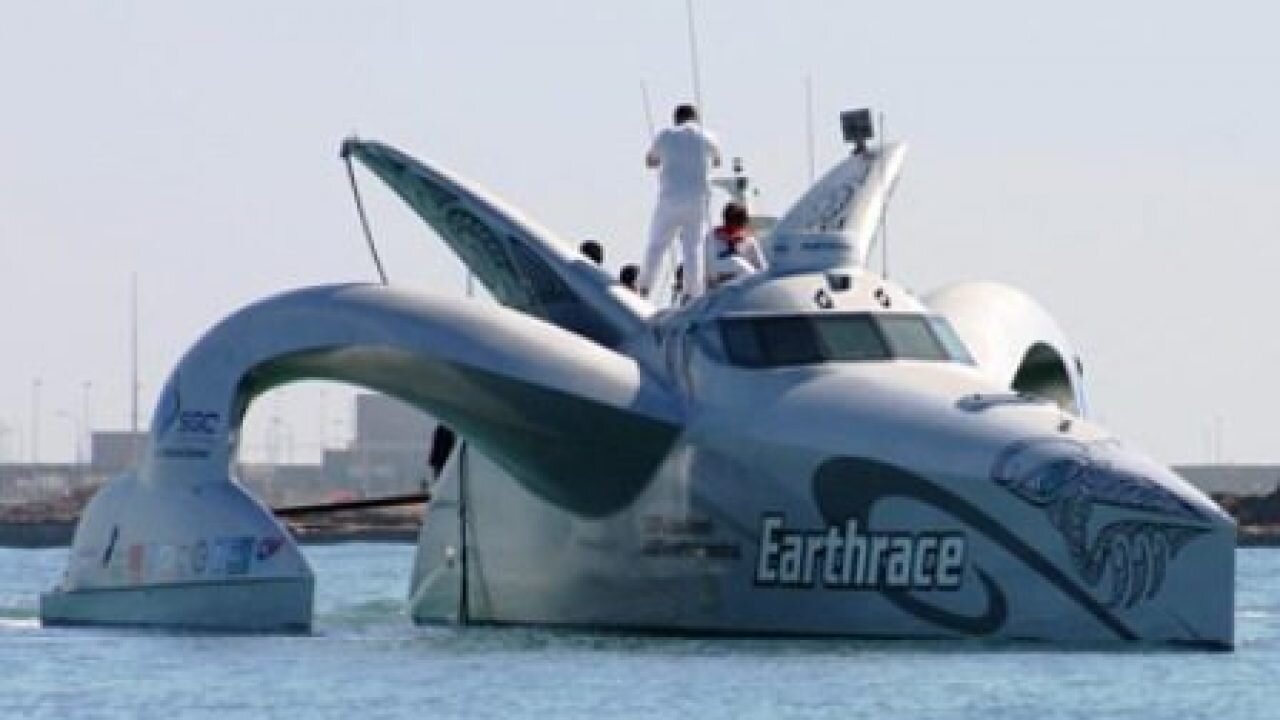Lark Rise pictures
EPISODE 111 FEATURES EMILY PENN
Emily Penn is a British sailor and the co-founder of eXXpedition - a series of all-women voyages exploring the impacts of plastics and toxins in our oceans. "The only way to reduce the potential impacts on human health and the environment is to reduce consumption," she says.
But where to begin? For the next two years, a total of 300 women will sail around the world on eXXpedition's voyages of discovery, to look deep into what's going on with plastic in our oceans, and try to come up with solutions.
Why XX? Women are underrepresented in science and sailing - the XX in the title refers to the female sex chromosome. Could plastic pollution be gender discriminatory? Could women suffer greater effects from it than men? Remember, pollution can bio-accumulate - the fish eat the plastic, and we eat the fish. Of the estimated 700 contaminants in our bodies, many have barely been researched.
Watch Emily’s TED Talk:
VOYAGES
eXXpedition Round the World is an all-female sailing voyage and research mission. Over 38,000 nautical miles and 30 voyage legs starting and ending in the United Kingdom. On board S.V. TravelEdge, eXXpedition crews will explore plastics and toxics in our ocean, via four of the five oceanic gyres and the Arctic. See the routes below. Further info here.
NOTES
MICROPLASTICS are fragments of plastic that measure less than 5 mm (as defined by NOAA). The abundance of microplastics in the oceans has grown steadily over the last few decades, as plastic use continues to rise.
EQUALITY There aren’t enough women in STEM. Globally, women occupy only 13% of the STEM workforce (including health professionals). According to the UN, less than 30% of the world’s researchers are women, and “Numerous studies have found that women in STEM fields publish less, are paid less for their research and do not progress as far as men in their careers.” Which is annoying, obviously. So are there more male explorers and sailors too? Yup. Read this, but a new generation of female sailors is determined to change that tired old story.
GENDER & CHEMICAL POLLUTANTS Historically, studies on the effects of chemicals on human health have largely focused on the specific effects on men. Reasons for this include men historically being the majority component of the workforce where occupational studies have typically been focused, or because effects on reproductive systems can often be more easily determined in men compared to those in women. As a result, research on female-specific diseases has held a relatively low profile. This imbalance in research is becoming increasingly important as the incidences of non-communicable diseases, such as cancers, are increasing… We are all exposed to chemicals on a daily basis, but women and men are often impacted through different exposure routes. For example, adult women have higher levels of urinary metabolites than men for phthalates (present in personal-care products, cleaning products, fragrances and cosmetics), which may be linked to birth defects, and bisphenol-A (BPA, the backbone of plastics and epoxy resins, and found in food containers) which has been found to affect hormone production and fertility in females. Women also have a tendency to have more fatty tissues, within which certain toxics – especially those originating from plastics – are more likely to accumulate. Of even greater concern is that the body burden of chemicals is passed on from mother to child, with levels of some hazardous chemicals increasing from generation to generation. Via eXXpedition.com
Some of the chemicals used in plastic are LIPOPHILIC or fat-loving.
ENDOCRINE DISRUPTORS interfere with body processes mediated by hormones.
UN CONVENTIONS ON POPs. The Basel, Rotterdam and Stockholm conventions are multilateral environmental agreements, which share the common objective of protecting human health and the environment from hazardous chemicals and wastes.
For more on POPs in our daily lives, check out Episode 99 with Mary Creagh.
PREGNANT WOMEN and tuna. In the UK, the NHS advises against pregnant women eating fish from the top of the food chain, because of high levels of mercury. This includes tuna, swordfish and marlin.
Emily mentions the JEWISH MUSEUM in Berlin, designed by architect Daniel Libeskind. More here.
A GYRE is a large system of rotating ocean currents.
EARTH RACE is a biofueled ship that sailed around world to promote renewable fuels. And yet, it looks like a rocket ship.
“IF I’D TAKEN A PLANE, I WOULD HAVE MISSED IT ALL: THE CHANGING CULTURE, LANDSCAPE AND CLIMATE, BUT MOST OF ALL THE PEOPLE I GOT TO MEET ALONG THE WAY.” - EMILY PENN
Read Jo Gallacher ‘s story on Emily in Recycling Waste World here.
PLANKTON and microplastics can look eerily similar to fish. And, according to this National Geographic article, for seabirds, some plastics can smell like food too.
Emily Penn
MUSIC is by Montaigne, who sang this special acoustic version of “Because I love You” from her album Glorious Heights, just for us.
Can you help us grow? Tell your friends about Wardrobe Crisis, or leave a review in your favourite podcast app.
Clare & the Wardrobe Crisis team x







